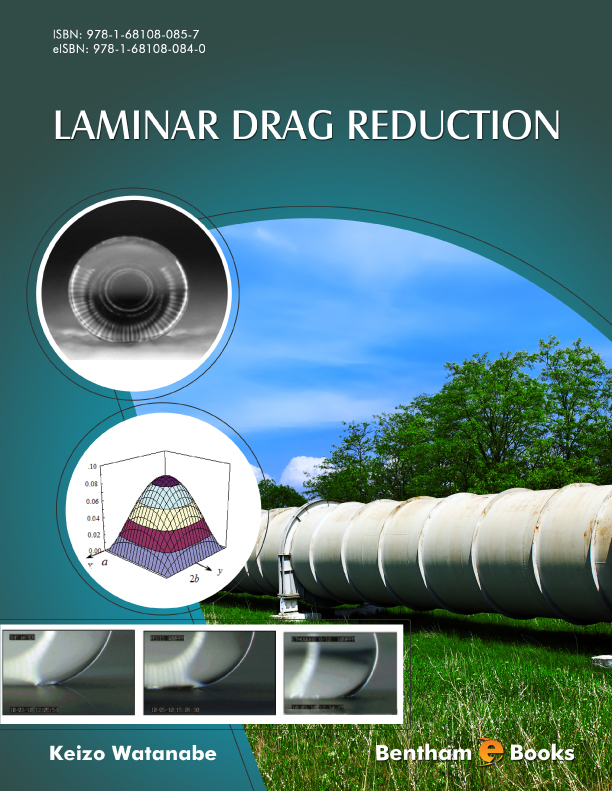Introduction
The phenomenon of resistance to motion through a fluid is believed to be a function of fluid-wall interaction. This theory is based on the assumption that under certain conditions a real fluid does not usually slip on the wall in contact with it and displays laminar flow. This set of conditions is known as a ‘no slip boundary condition’. But if a fluid is passed alongside a wall, the drag reduction in the laminar flow region can be calculated. In Laminar Drag Reduction, the frictional drag of an internal or an external fluid flow along a certain kind of hydrophobic wall is investigated. An analytic approach towards the mechanism of drag reduction is employed using Navier-Stokes existence and smoothness equations. The experimental results presented in this book show that frictional drag of a fluid alongside this hydrophobic wall decreases in comparison with fluid flow along a conventional wall or surface.
This form of laminar drag reduction represents a relatively new area of research, where the laminar flow can be controlled by microscopic surface modifications, allowing fluid flows to slip over a wall. Laminar Drag Reduction brings information about some interesting phenomena related to fluid slippage on a highly water-repellent surface. Readers, physics graduates and senior researchers alike, can benefit from the information presented in this book to tackle more challenging questions in fluid mechanics research.

